Airbus has unveiled its previously undisclosed Low Observable UAV Testbed (LOUT) programme.
It is understood that the programme recently completed the ‘iterative camouflage optimisation’ phase, prompting Airbus and the German defence ministry to provide some details about the programme.

It has been reported that the non-flying testbed was shown to media in carefully controlled conditions while it was mounted on a pole in a radar cross-section measurement chamber at an Airbus plant in southern Germany.
According to Airbus, the program took a “holistic approach” to stealth, simultaneously focusing on three aspects: reducing radar, IR, visual and acoustic signature, controlling electromagnetic emission of sensors and using electronic countermeasures for jamming and deception.

Initial studies by Airbus started in 2007. In 2010, the manufacturer received a contract from the German Ministry of Defense for a very low observable (VLO) ground testbed to experiment on reducing radar, infrared and sound emissions.

It is understood that LOUT served to test stealth technologies that could later be used on the Next Generation Fighter, part of the Future Air Combat System (FCAS) programme jointly being developed by Airbus and Dassault.


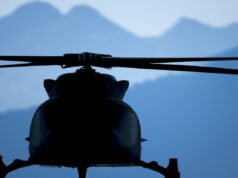
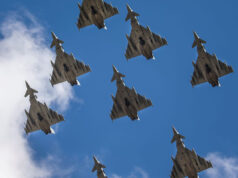
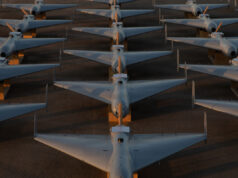

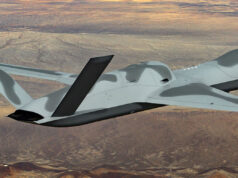

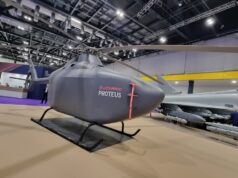
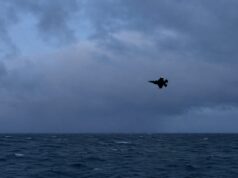
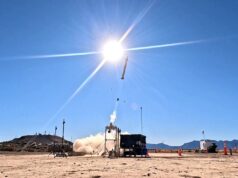
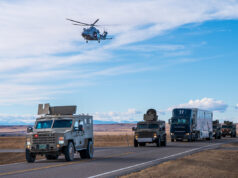

I don’t pretend to be an expert but isn’t this something the UK will have gleaned from involvement as a tier 1 F-35 partner, if not before? I keep trying to guess which system is further ahead Tempest or the European FCAS?
Before.
The BAE Special Projects Site at Warton has been doing this sort of thing for decades in conjunction with the US as aerospace tech forms one part of the close relationship between our two countries.
I believe it was a concern for the US on how much to share with the UK, as inevitably, the UK is tied in with Europe, and some sensitive technologies would be available to them.
Having said that, I read that much of the stealth tech came from Europe in the first place, and I believe the Germans had their own Stealth program called Firefly back in the day, which the US pressurised them to cancel!
Does anyone know if it is true that early versions of RAM were British, and handed over to the Americans?
Yes and no,
Germany has been in the low observable business since the late 70’s. MBB (now DASA) were contracted by the then West German Government to investigate how to make a fighter that didn’t need to dogfight. They came up with the Lampridae (fireflies). This concept was developed separately from Lockheed Martin Have Blue program. By using mathematical models they derived that by using angular plates as a fuselage, removing all curves and ensuring there were no 90 degree joins, the aircraft’s radar cross section (RCS) could be significantly reduced. They eventually developed one of the first computer models for determining RCS. They built two small scale prototype and tested them both in wind tunnels and anechoic chambers. The results were better than expected. This all came to a halt after they showed USAF officials the prototype in the late 80’s. It is rummoured the US plied on the pressure to cancel the program due to their Have Blue/Nighthawk program, as they couldn’t have two similar aircraft showing how to reduce RCS. MBB used their computer model on the Nighthawk, which showed their Lampridae had a lower RCS.
In the UK the first “proper” clean sheet design low RCS aircraft was the BAe replica prototype which was part of a design study into the RAFs requirement for a future offensive air system (FOAS) which originally started in the early 90’s. The requirement was originally to replace the Jaguar, but then looked at the Harrier, so it was dropped and we joined the F35 program.
The UK had known about the significance of lowering the RCS of an aircraft and the advantages it would give since Robert Watson-Watt and Arnold Wilkins invented it after detecting the Handley-Page Heyford bomber. It was soon discovered that the Mosquito had a lower RCS than expected which was equivalent to a Spitfire. The aircraft was still detectable to the German radar, but to a similar range as a Spitfire. This is because their centimetric radar would pass through the aircraft’s plywood skin and reflect of its internal pipework, engines, bombs etc.
Later during the cold war, although not designed as a “stealthy” aircraft, the Vulcan had some real benefits of being designed as a delta winged bomber. On numerous occasions the aircraft would easily penetrate the US’s radar on the East Coast with impunity. They regularly conducted nuclear bombing practices over their major cities. Even during the Black Buck raids in the Falklands, they were very rarely detected and if they were the aircraft’s RF jammers would nullify their radar.
The other aircraft we had that was found to have a very low RCS, was the Hawk jet trainer. In the 80’s BAe did some trials with the aircraft and halved its RCS with very little modifications. They fitted a gold lined canopy, which stopped radar waves bouncing around the cockpit. They fitted RAM to the engine intakes and filled the skin panel joints with a conductive paste. It was found that against X band 8 to 12.5 GHz radar the aircraft was very difficult to detect at anything but close range (I think the quote was anything over 25 km depending on the aircraft attitude to the radar).
Most aircraft producing countries, such as France, Sweden, Italy, Israel, Japan, Russia, China, India and the UK have a thorough understanding of what’s required to produce an aircraft with low RCS. The problem comes when trying to produce that aircraft. Both Russia and China have produce what they class as a 5th generation fighter. Yet, their performance is not at the same level at either the F22 or F35, let alone the B2. They may have a low frontal RCS, but any other angle lets them down. The B2 by comparison is the “daddy” when it comes to stealth as its actual larger size helps it lower its RCS against a much broader range of radar frequencies.
Both the UK and Germany developed RAM during WW2. The Germans needed to protect their subs from maritime patrol aircraft that used radar to detect their periscopes or snorkels. They developed Sumpf and Schornsteinfeger and was a combination of rubber and carbon as part of the Jaumann absorber. Both the UK and US developed the Salisbury screen which was only effective against a specific frequency, so if you re-tuned your radar to a different frequency it won’t work. However, during the middle period of the battle of the Atlantic corvettes were fitted with VHF radar to detect periscopes. Germany then fitted radar to their subs to detect maritime patrol aircraft, so they could have sufficient time to dive. However, they used a fixed frequency radar to not only could it be easily detected but by using a ship with a Salisbury screen fitted to its structure would allow the ship to get much closer before being detected.
A comprehensive reply as always Davey.
Thank you.
Forgot to mention the Salisbury screen was actually invented by an American, but they didn’t see a use for it. It was the UK that first used it. The first time it was properly used, was on some of D class motor gunboats that took part in the Bruneval raid (Operation Biting). These were patrolling just off the coast ready to pick up the raiding parties.
They had the Salisbury screens fitted so that they could operate close to shore. They also had a number of other modification such as better baffles for the exhausts and rudimentary composite armour fitted over the wooden structure. The armour comprised of crushed quartz cemented to the wood, as it proved quite effective at stopping machine gun rounds.
Thanks for your explanation DaveyB, some insightful stuff and as I have a bit of a fascination with MTB/MGB’s I found that bit particularly interesting. Cheers.
Those rumors that the US applied pressure to halt the West German stealth efforts are total hogwash. Have Blue was terminated in late 1977 and Senior Trend, its successor program, was initiated with demonstrator aircraft significantly different from those developed during Have Blue. The first production aircraft was delivered in mid 1982.
Have Blue and Senior Trend were both compartmented weapons development programs whose classification precluded any contact, formal or informal, with any foreign power, including NATO allies.
I agree on the Have Blue and Tacit Blue as well as the Senior Trend. But all the programs used the same technology to lower the aircraft’s RCS. At two separate times and locations, they both derived that the best method of lowering RCS with the technology at the time was by using faceting.
The Tacit Blue program combined faceting and blending to create an aircraft that could barely fly, suffered flame outs at high angles of attack but was used to help Northrop develop the B2.
The Lampridae had a lower RCS then the F117, which was proved using a computer model. The program was highly advanced when it was stopped, they had finished the wind tunnel testing on scale models and were in process of building the full scale prototype, when the program was halted.
The program was demonstrated to the USAF and coincidentally shut down within 6 months of the visit. The question that still remains unanswered is why?
Interesting, pure speculation of course but it would not be the first time that projects were closed down soon after visits from US experts. The M.52 comes to mind though a new Labour Govt was the more commonly expressed and probably not unreasonable explanation but one could imagine a quid pro quo being part of it. Either way it’s technology ended up in the Bell X-1 to help like so much else contribute to making ‘America great’ first time around.
So the program was terminated. The Yanks already had their stealth aircraft developed totally in a compartmented environment. Not only that they had an operational squadron. They weren’t about to go back and redesign their aircraft. They decided to apply what they learned to the B-2 and the F-35. What the Europeans were doing was irrelevant.
Why then this knee jerk reaction that the Yanks must have had something to do with it. Maybe they realized just how much this was going to cost and decided not to pursue it. Just because a branch falls off of a tree in the forest doesn’t mean the Americans were behind it.
The first thing that came to my mind was the A-12 Avenger (aka the Flying Dorito). The shape is very reminiscent of that project.
https://en.wikipedia.org/wiki/McDonnell_Douglas_A-12_Avenger_II
Or the TR3A, which I believe exists.
I have a low observable dog – if I also turn the lights out…..
Looks very similar to the US A-12 Avenger that was cancelled in the early 90’s.